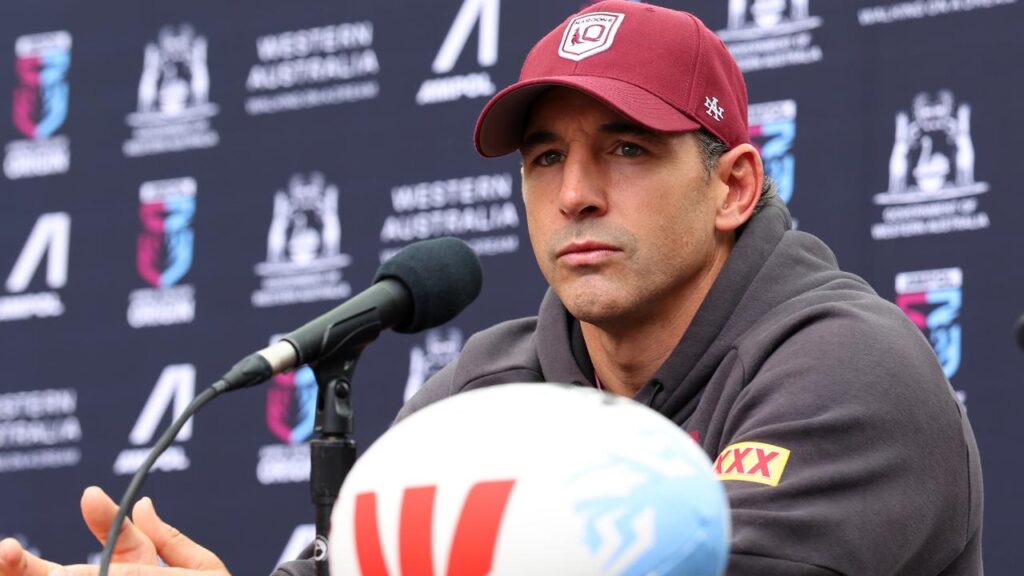
The rugby league community is abuzz with debate following Queensland Maroons coach Billy Slater’s emotional reaction to Aaron Woods’ “grub” comment. Slater’s response, which referenced the late Queensland coach Paul Green, has ignited discussions about mental health and the responsibilities of public figures.
In a heartfelt moment on the eve of State of Origin II, Slater addressed the media, saying, “Although I might be able to handle it, the next person mightn’t be. Maybe our last coach didn’t,” alluding to Green’s tragic passing. This statement has prompted varied reactions from the rugby league community and beyond.
The Context of Slater’s Remarks
Slater’s comments came after Aaron Woods, in a media appearance, referred to him as a “grub,” a term often used in rugby to describe a player who plays aggressively or unfairly. Woods’ comment was made in the context of a broader discussion about Queensland’s team selection and performance.
Paul Crawley, a commentator on NRL 360, praised Slater for addressing the mental health implications of such comments but questioned the necessity of involving Paul Green in the conversation. “It was raw, it was real, I just wonder if Billy may have overstepped the mark bringing Paul Green into it,” Crawley remarked.
Reactions from the Rugby League Community
Gorden Tallis, a former rugby league player, emphasized the importance of Slater’s reminder about the impact of public statements. “I think it is a reality check for all of us,” Tallis noted, highlighting the emotional nature of the game and the responsibility that comes with having a platform.
Meanwhile, Dean Ritchie of The Daily Telegraph suggested that Woods’ comments should be viewed in context, noting, “The Paul Green situation is incredibly sad obviously. But I think what Woodsy said was in jest. It is a comment we look back on now which has perhaps gone wrong.”
Balancing Sensitivity and Context
Braith Anasta, a former Blues five-eighth, expressed understanding for both Slater and Woods, acknowledging the sensitivity of the situation. “It is a sensitive one and watching it I can see both sides a little bit here,” Anasta said, sharing his personal commitment to mental health advocacy.
Anasta further explained, “I don’t think Woodsy called him a grub in terms of a grub of a human being. He was talking about the way he played.” This distinction, Anasta argued, is crucial in understanding the broader implications of Woods’ remarks.
Historical Parallels and Future Implications
Reflecting on Slater’s past as a player, Paul Crawley pointed out that Slater was known for pushing boundaries on the field. “He was known at one point as a Blues supporter and a person in the media as teflon Bill because he went out there and nothing stuck to him,” Crawley recalled.
Woods’ criticism of Queensland’s decision-making, particularly regarding Daly Cherry-Evans, further fueled the debate. “There’s a lot of pressure on Billy Slater,” Woods commented, questioning Slater’s confidence and decision-making as a coach.
This ongoing discourse highlights the complex interplay between sportsmanship, mental health, and public accountability. As the rugby league community continues to grapple with these issues, Slater’s emotional response serves as a poignant reminder of the human element within the sport.
Looking ahead, the conversation around mental health in sports is likely to intensify, with Slater’s comments acting as a catalyst for broader discussions. The rugby league community, along with fans and media, will need to navigate these sensitive topics with care and empathy.




